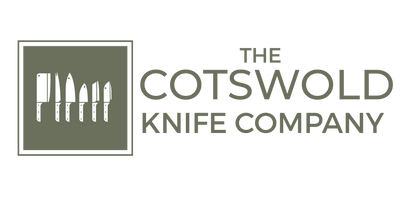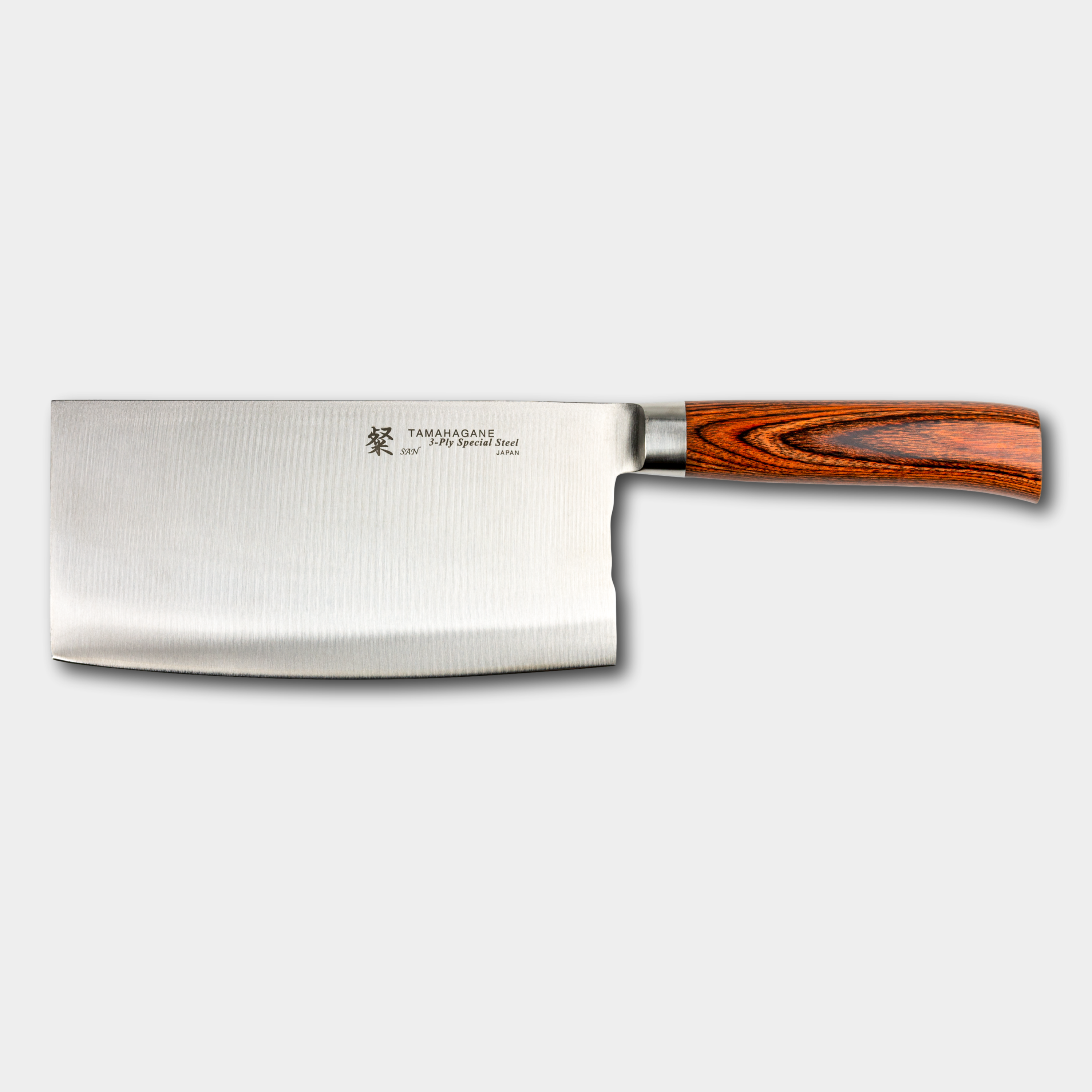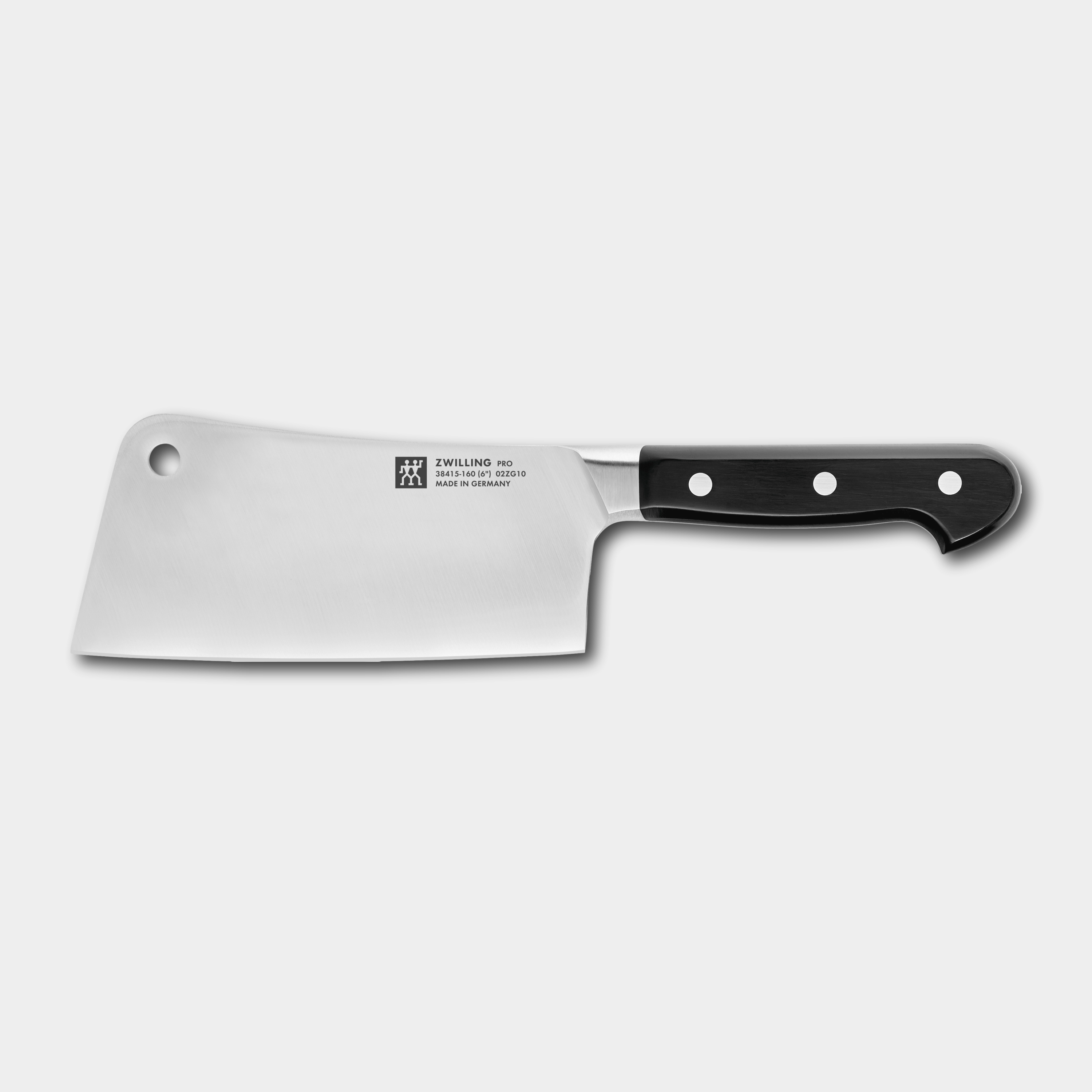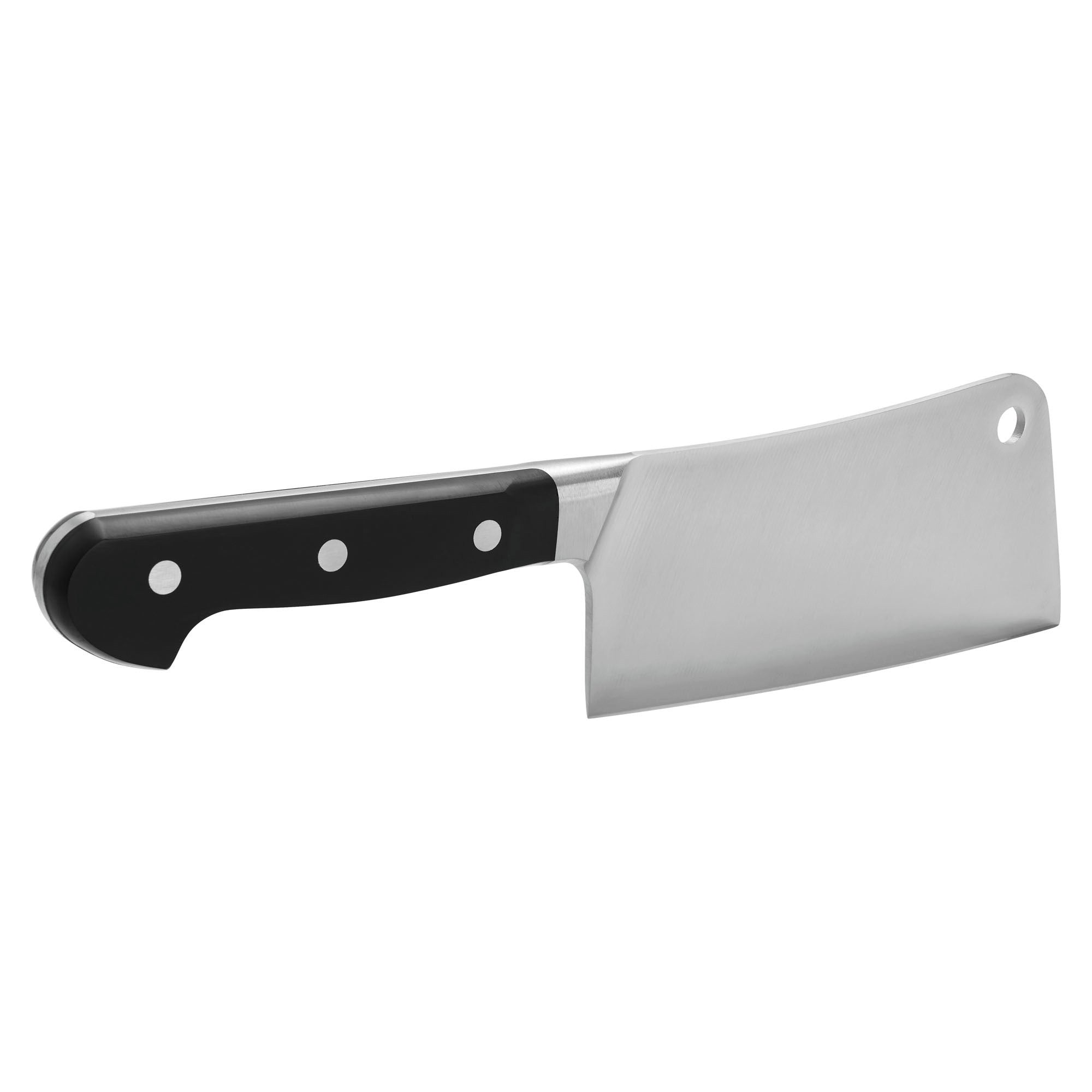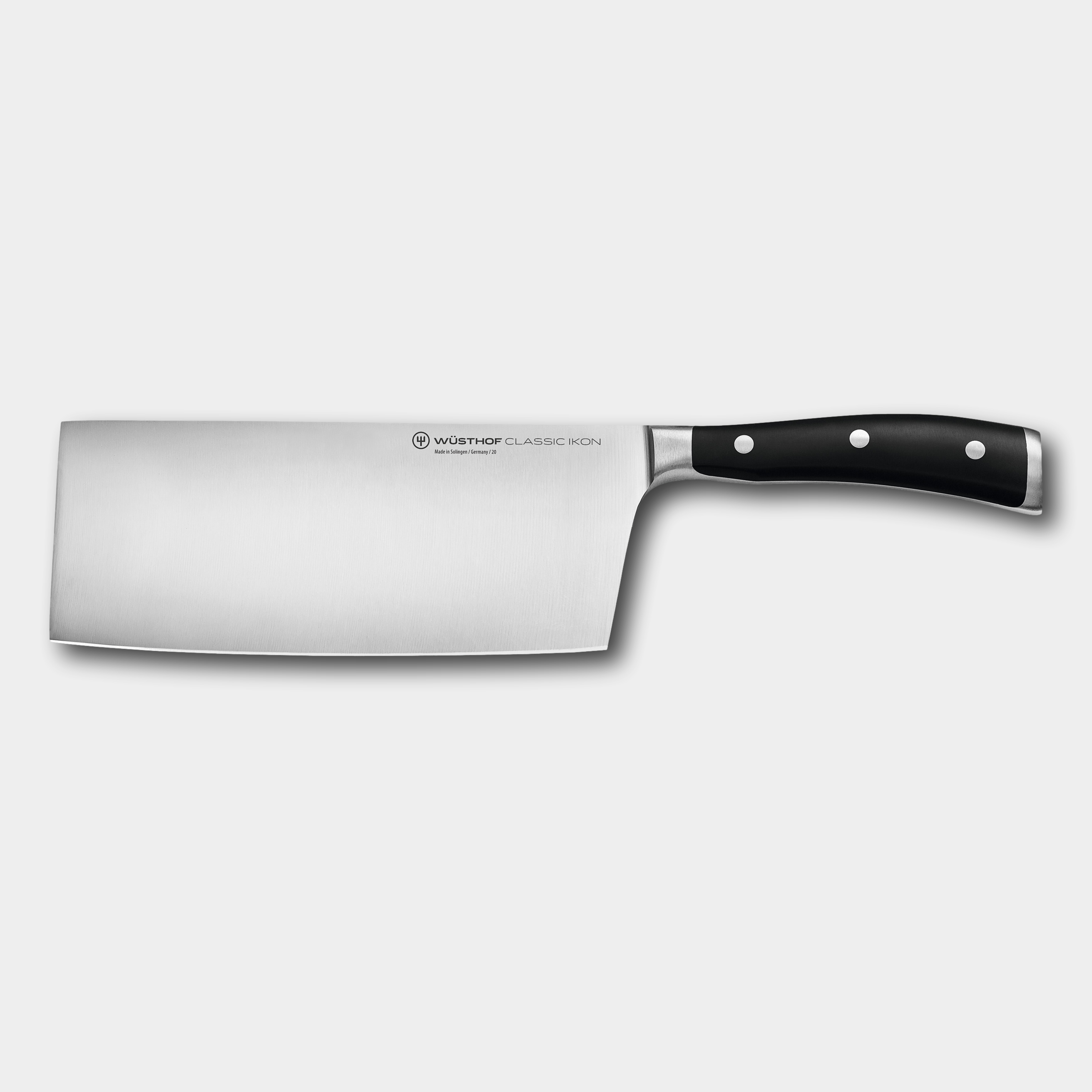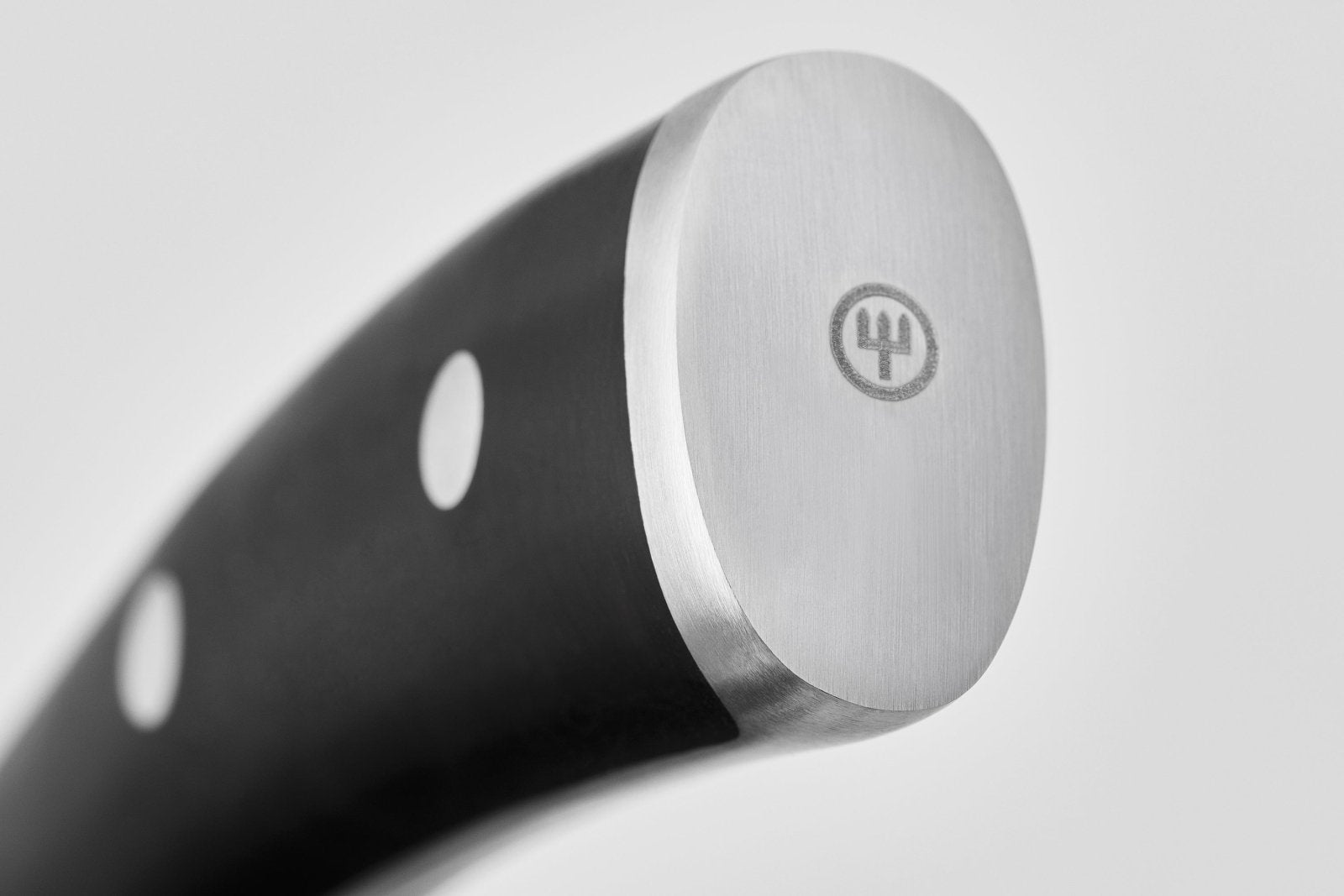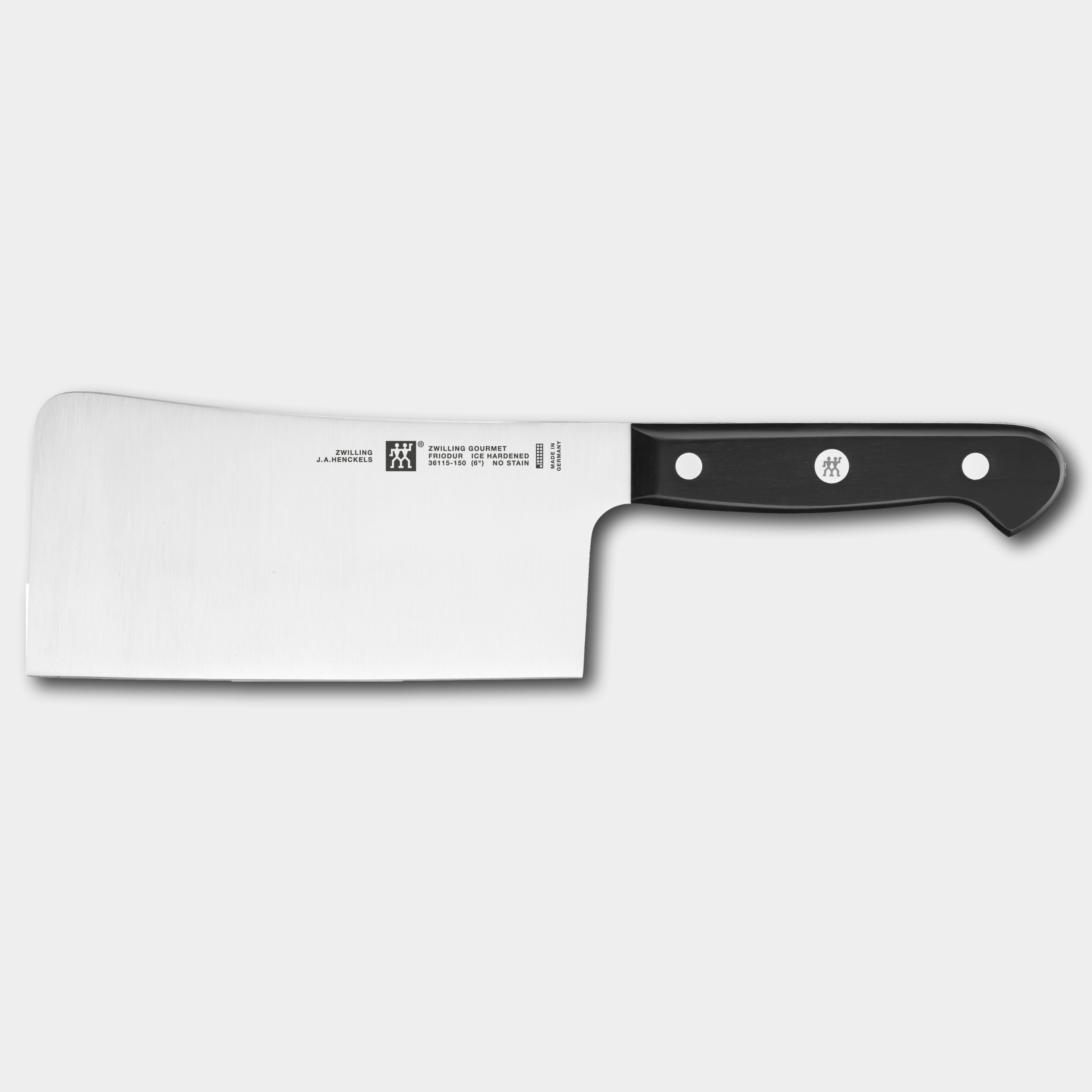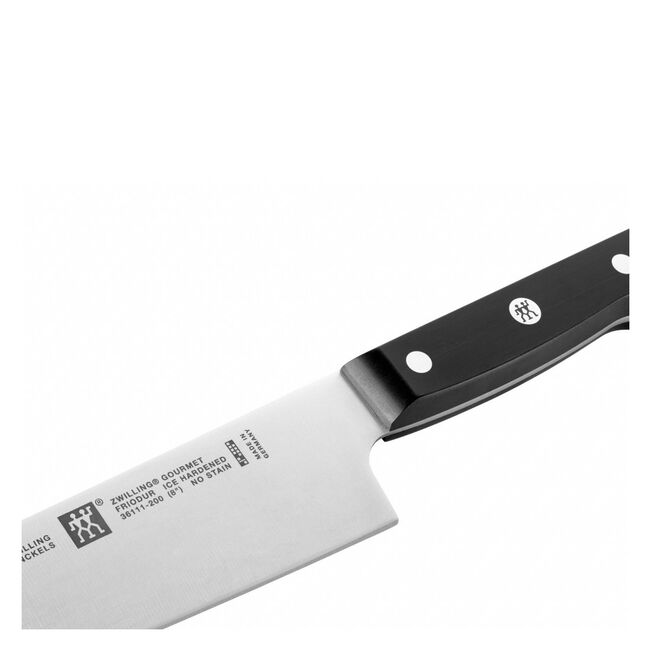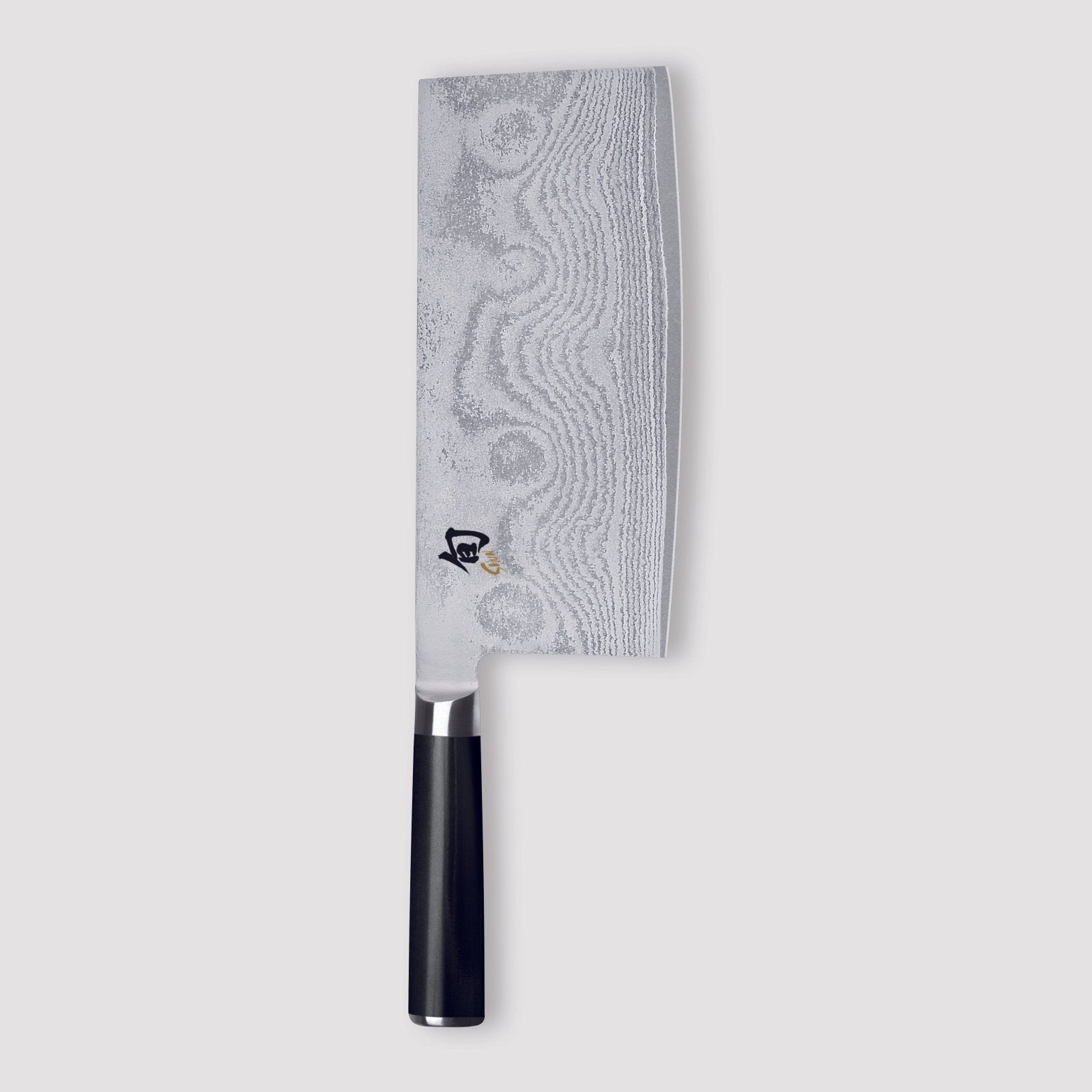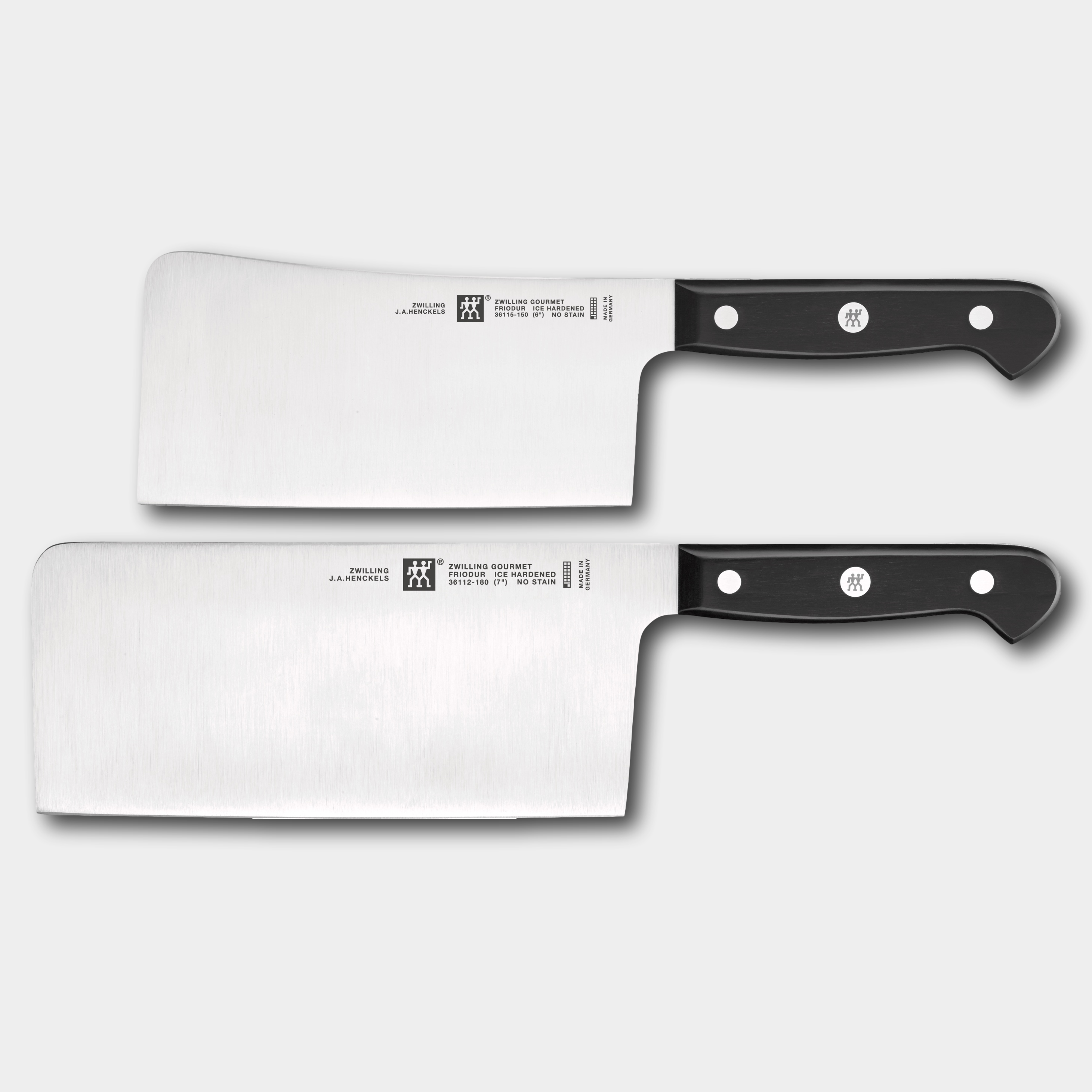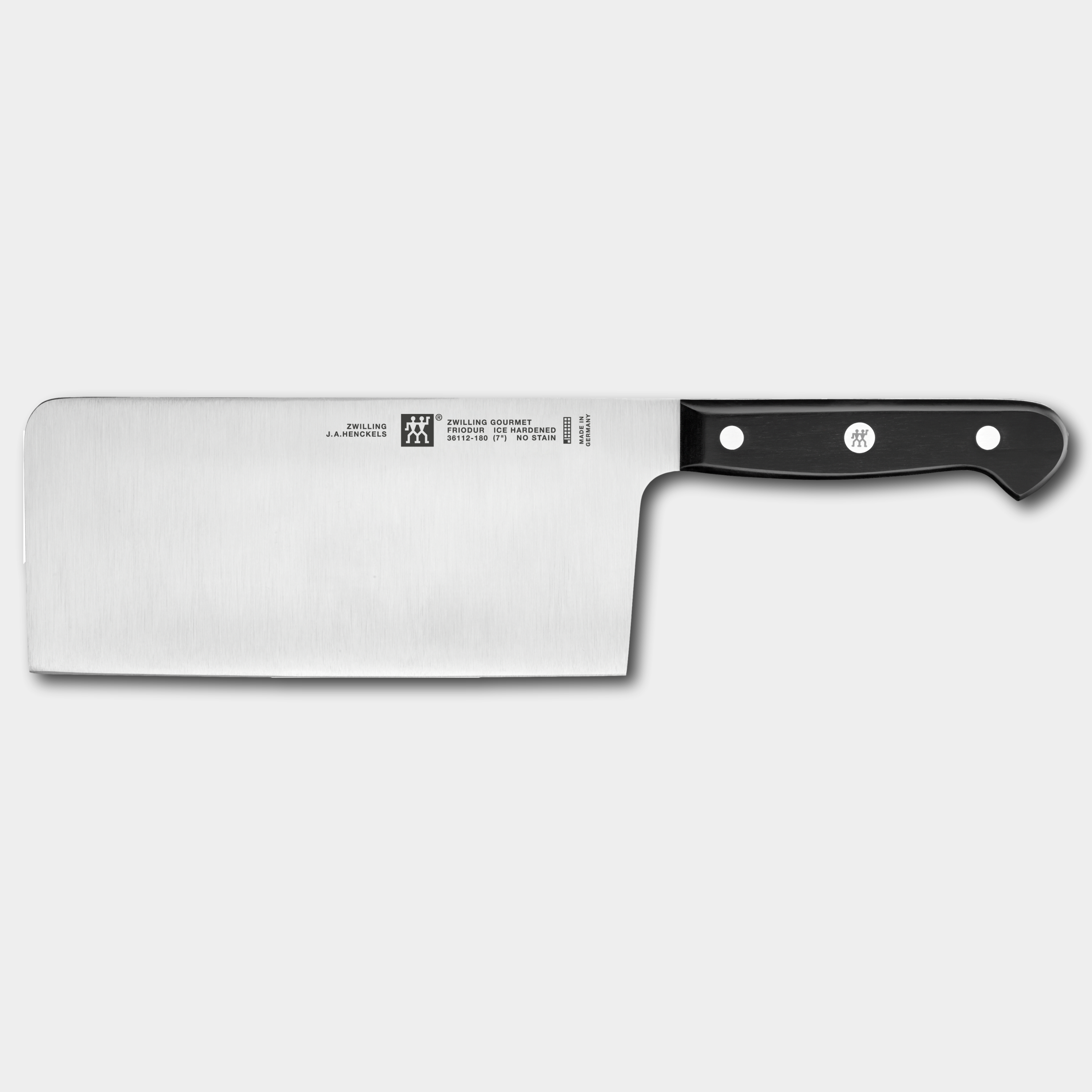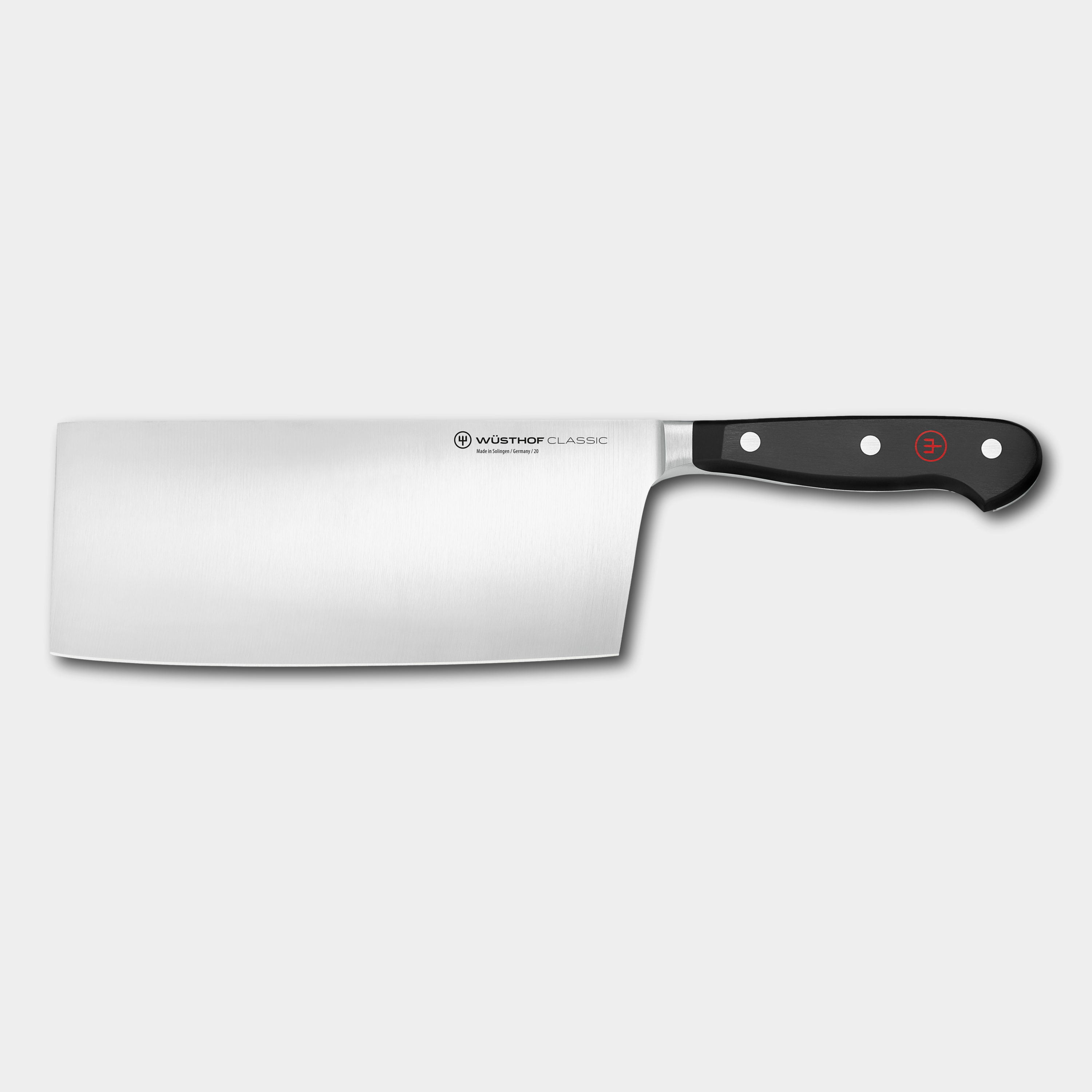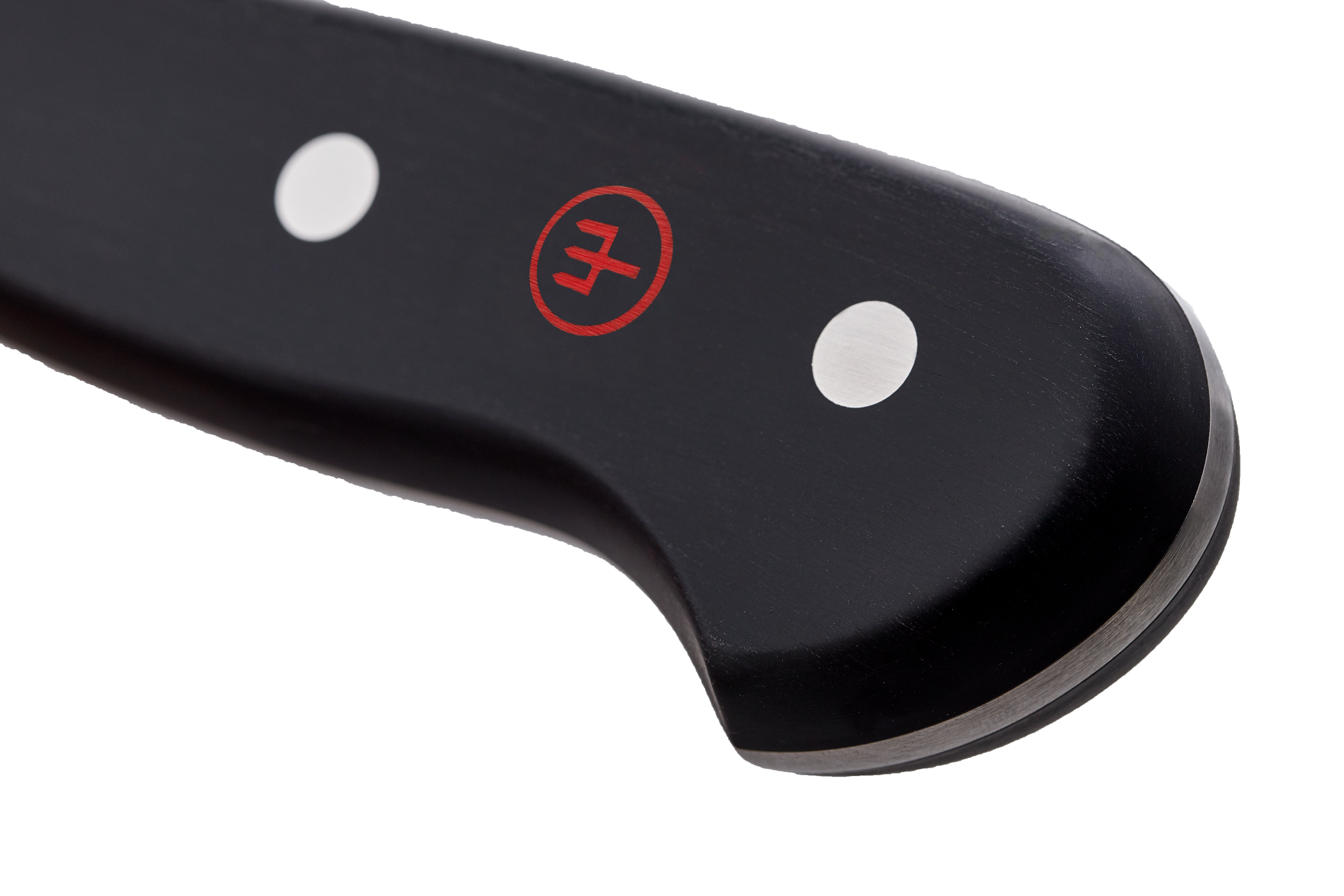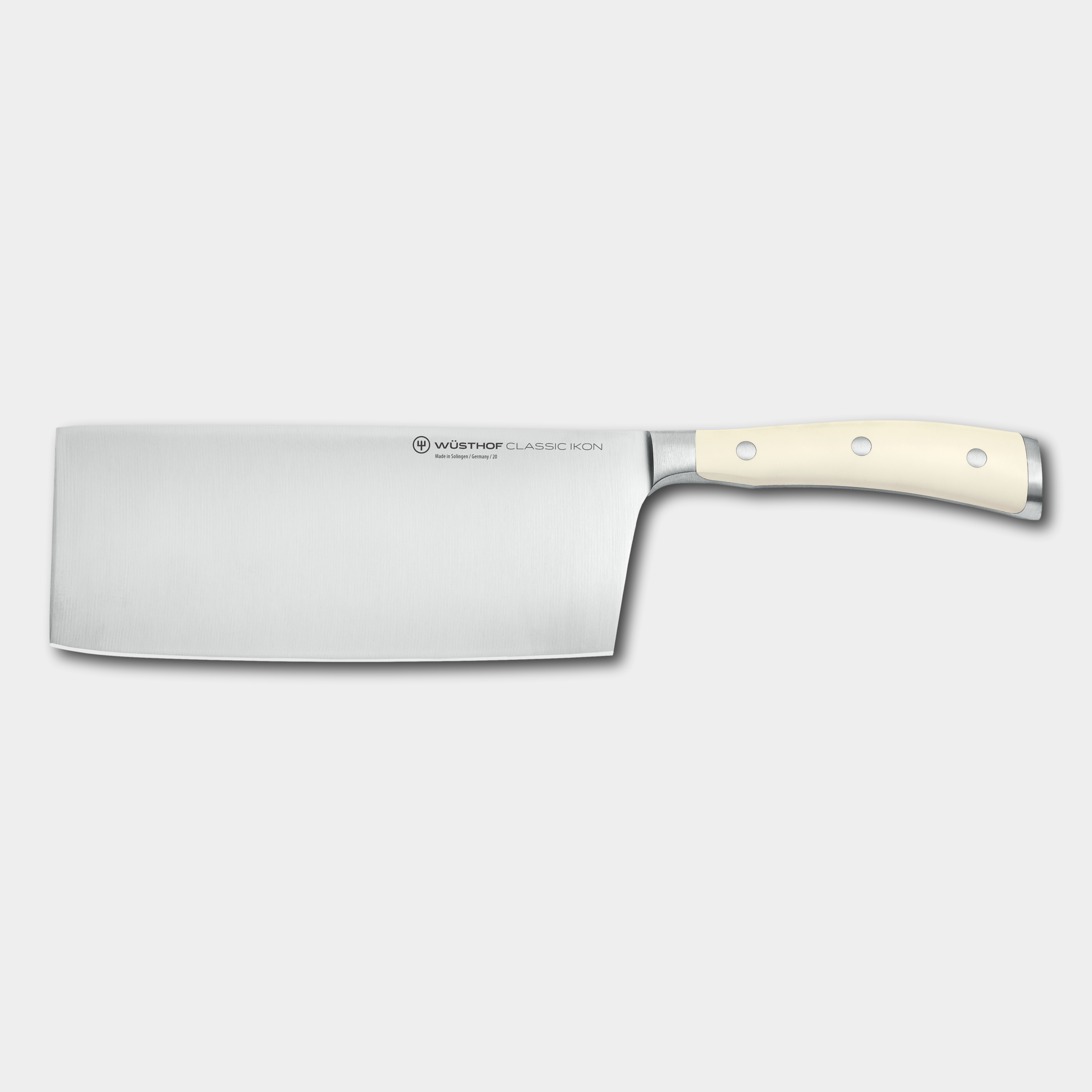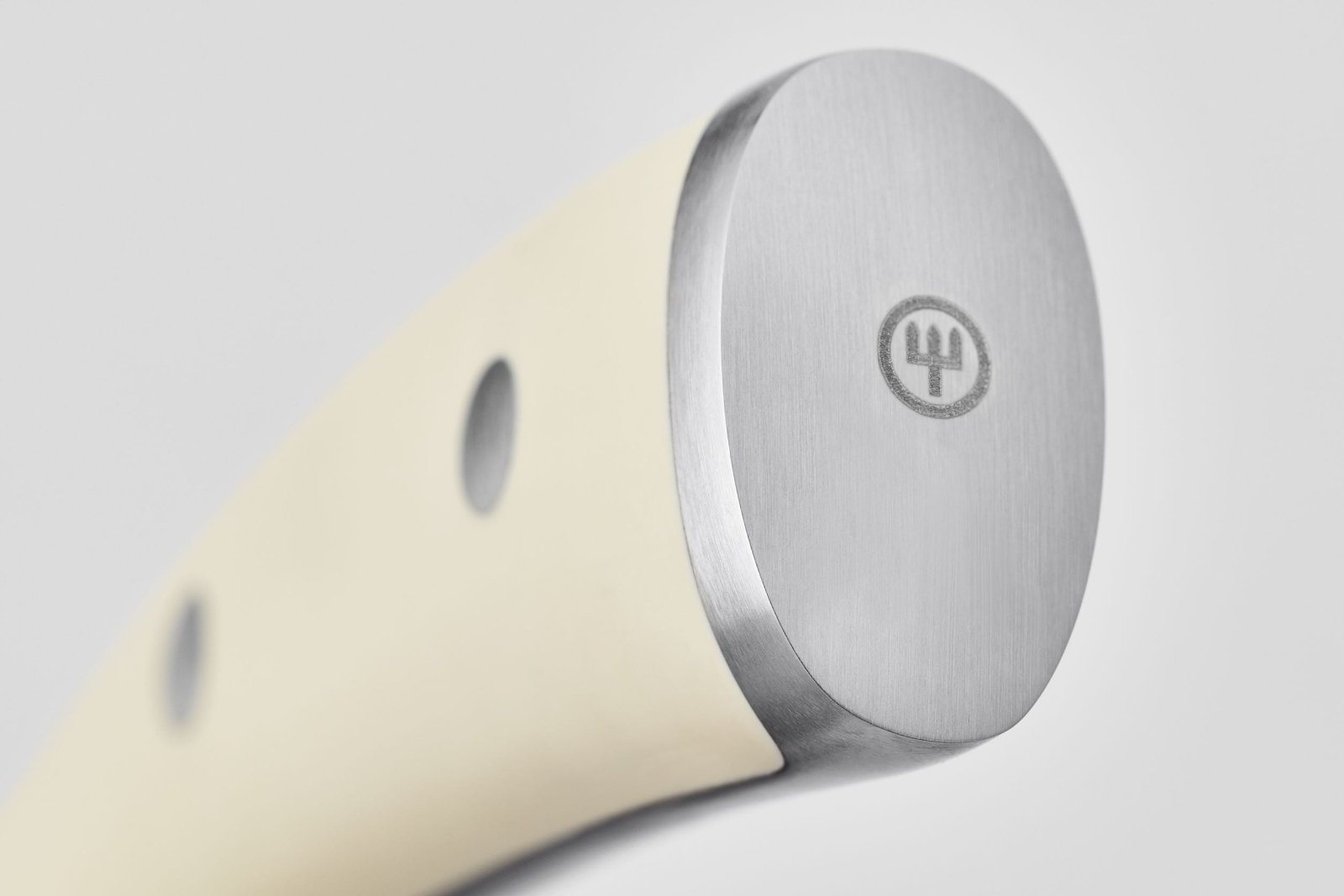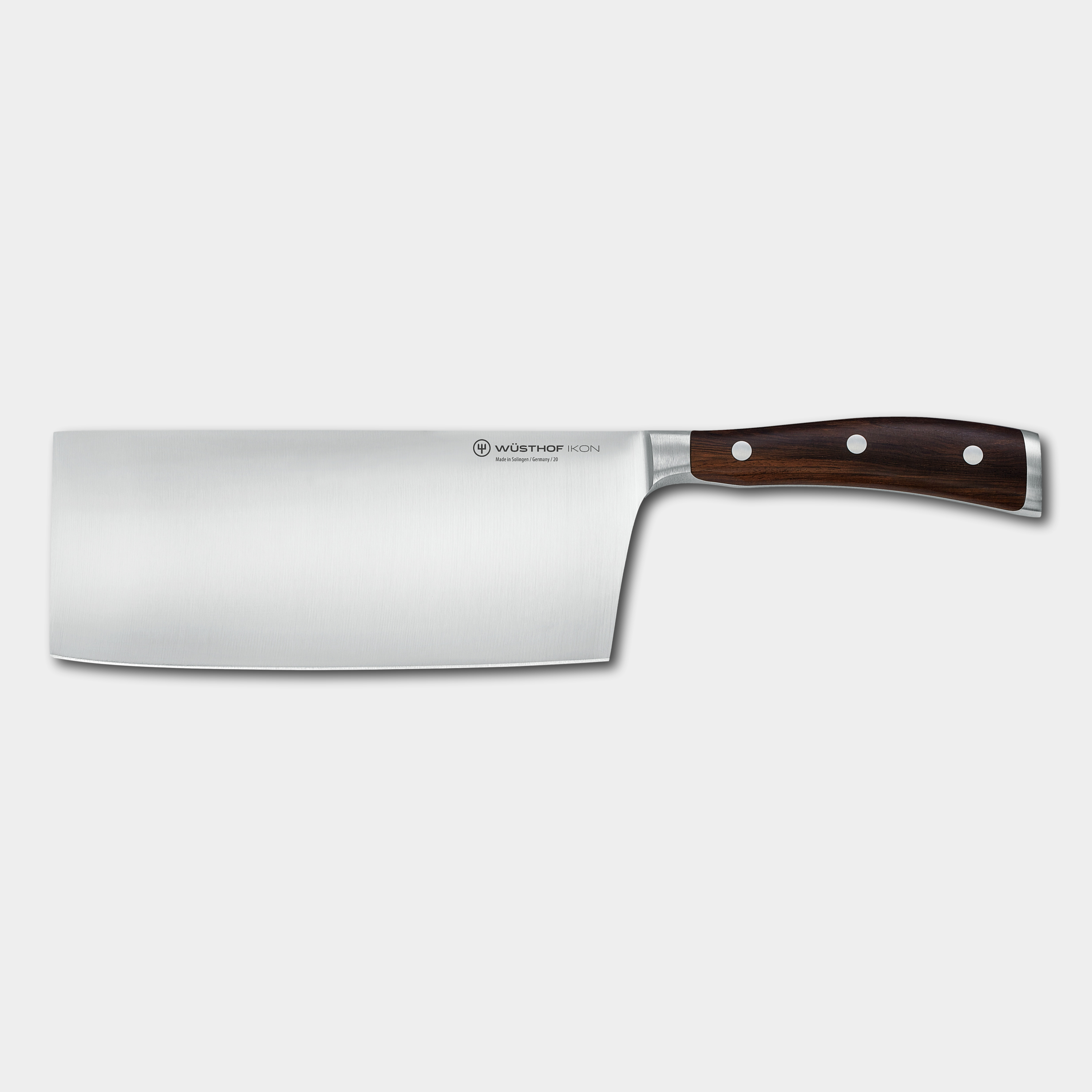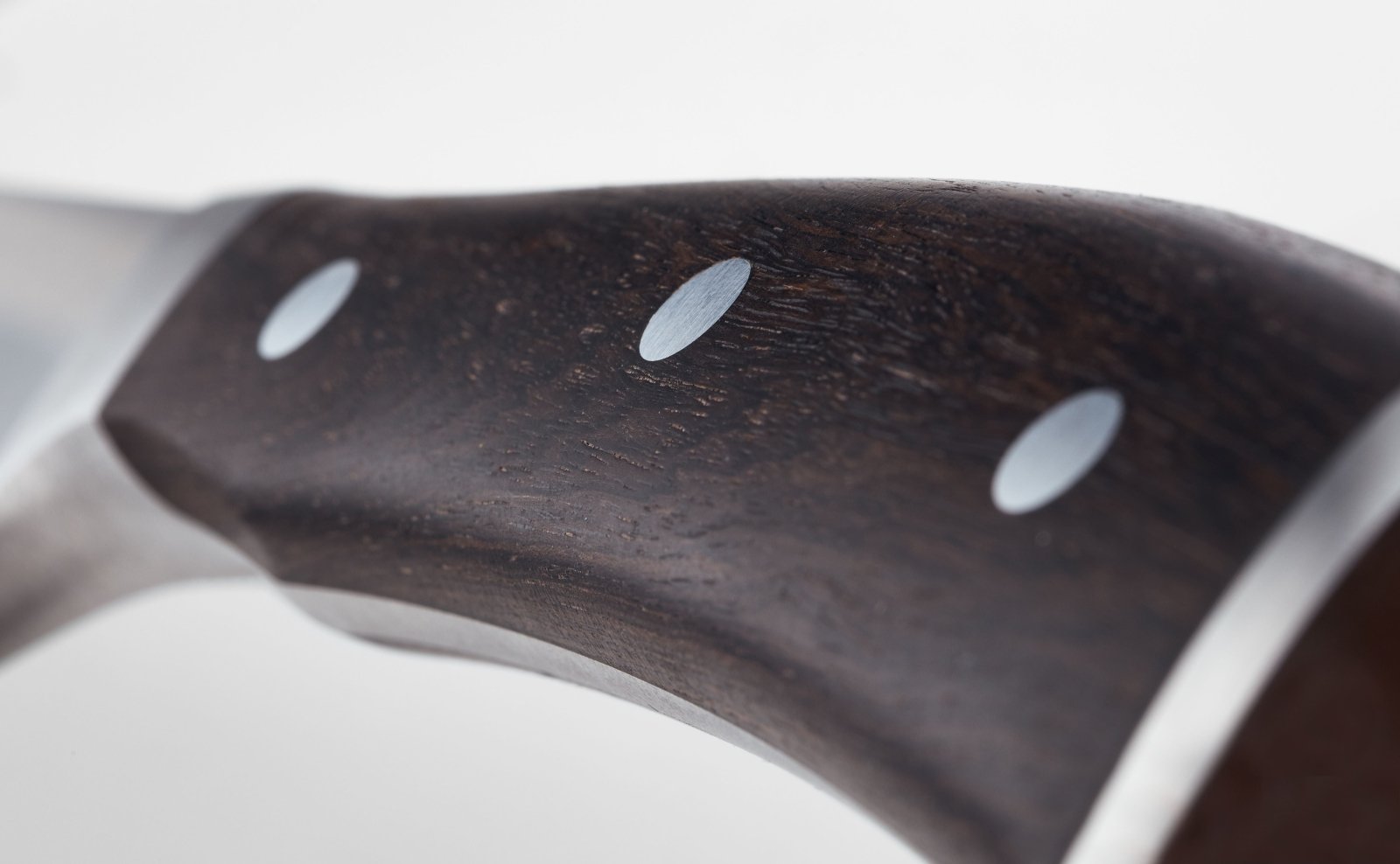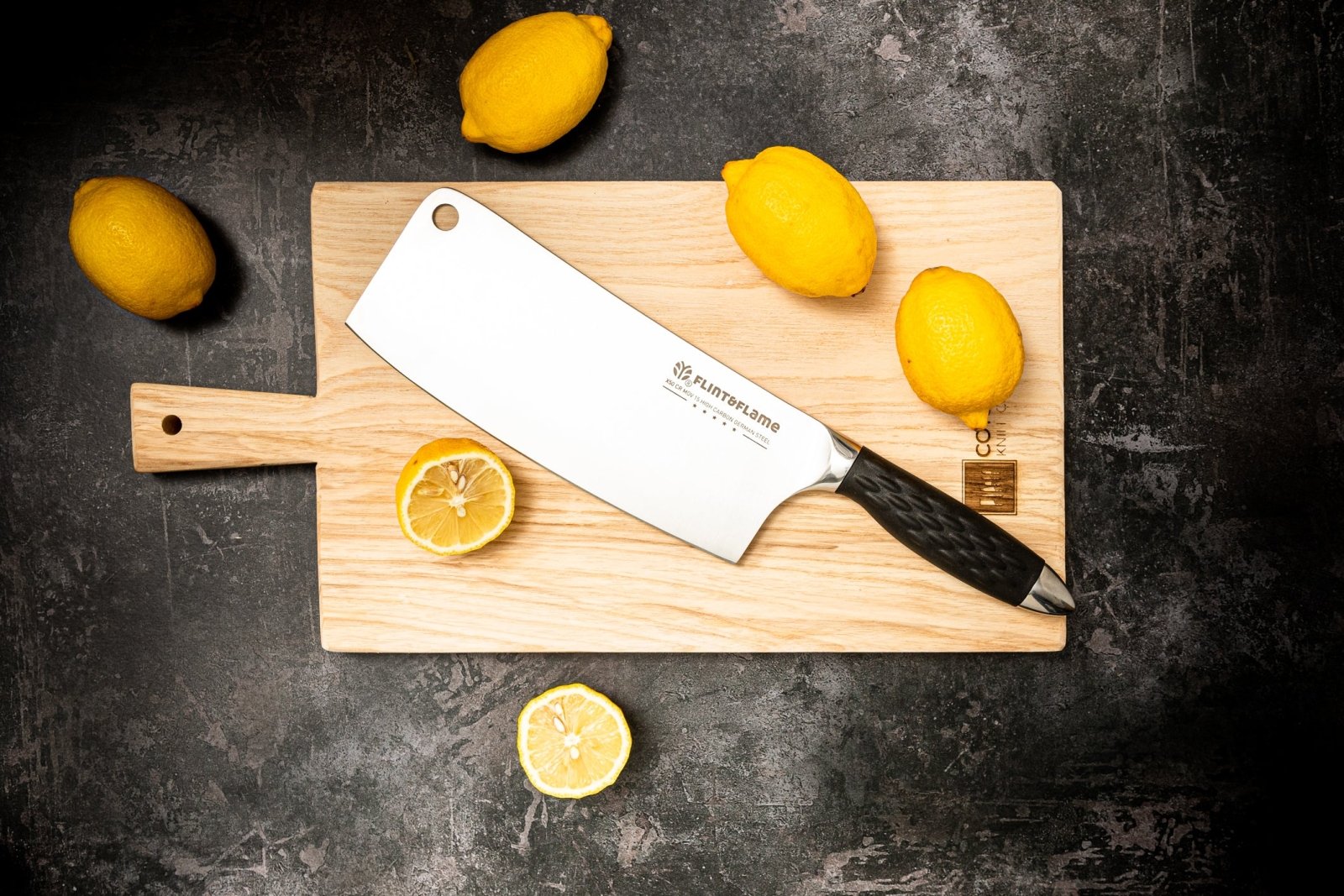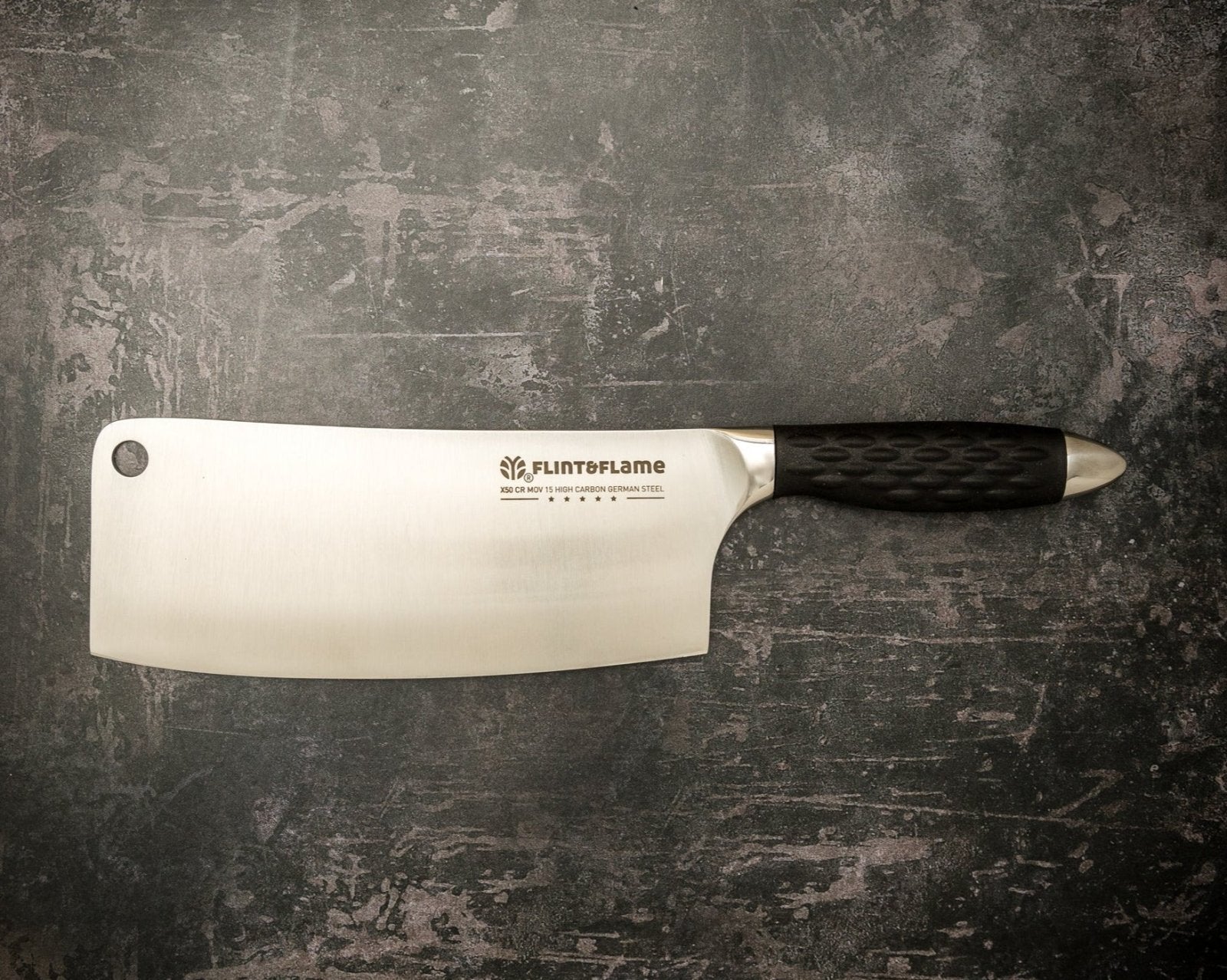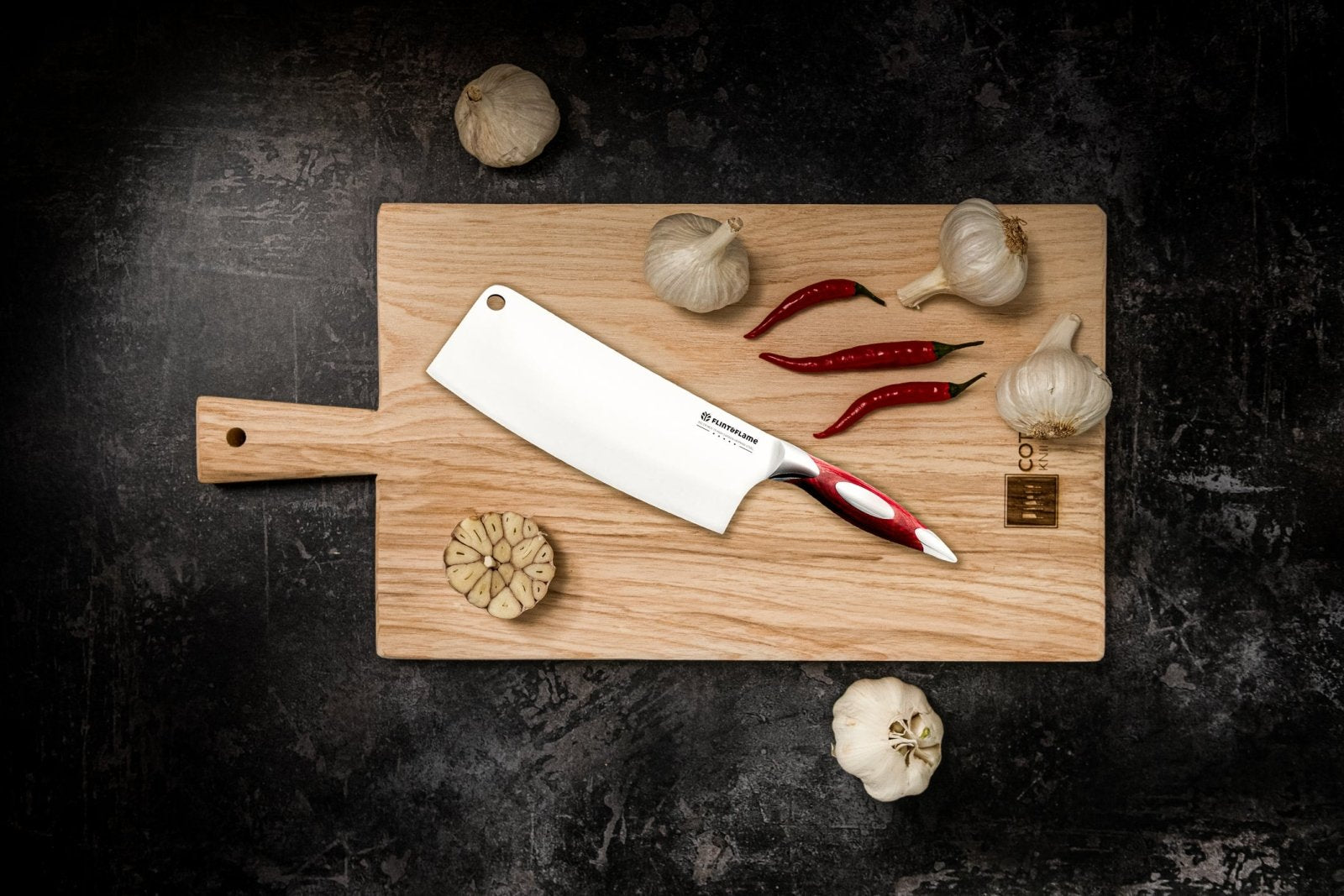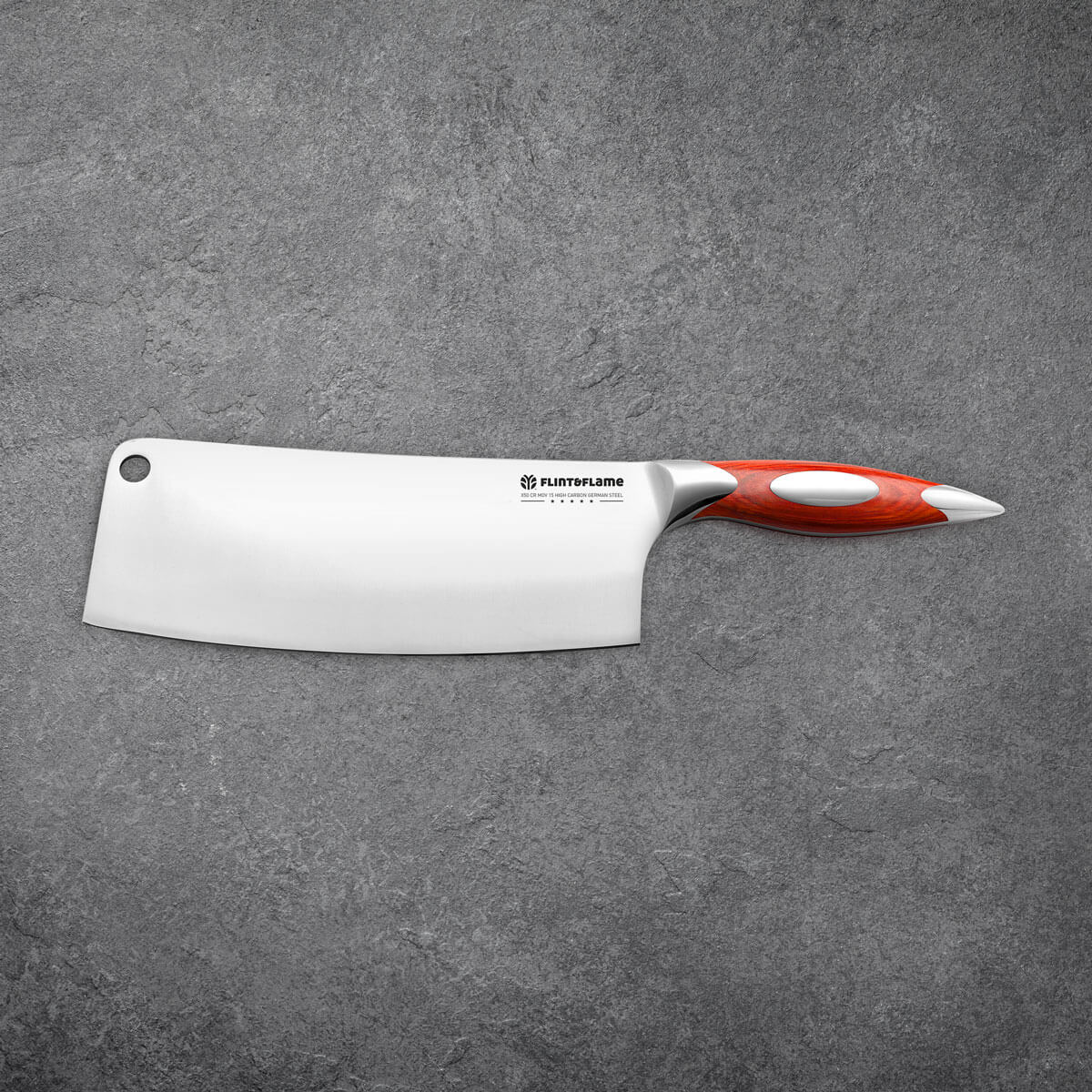
Cleaver Knives
Cleaver knives are known for their large, rectangular blades and powerful cutting ability. Our range includes both the lighter, finely honed Chinese cleaver, ideal for slicing vegetables, and the heavy-duty meat cleaver, essential for butchering tougher cuts of meat and bones. The Chinese cleaver, with a blade length of 17-18 cm, performs very similarly to the Western chef’s knife. Its lighter weight and thinner blade give it the agility of a chef's knife, allowing for clean, controlled cuts without crushing delicate ingredients. Additionally, the broad blade surface makes it easy to scoop up chopped ingredients and transfer them directly to the pot or pan, adding efficiency to meal prep.
The traditional meat cleaver, typically 15-16 cm in length, is thicker, heavier, and tougher specifically designed to tackle dense cuts of meat and bones. For example, the damascus steel blade from the Kai Shun collection wasn't tough enough. This lead to the only knife from this collection to feature a blade that wasn't damascus steel to ensure it could withstand the rigors of butchering.
- Renowned Brands:Featuring top names like Wüsthof, Zwilling, Kai, Tamahagane and more.
- Express Delivery: If ordered before 2 pm we will dispatch it the same working day. Express delivery is available at the checkout.
- UK Support Talk to us, not a robot, we can advise and process your order over the phone
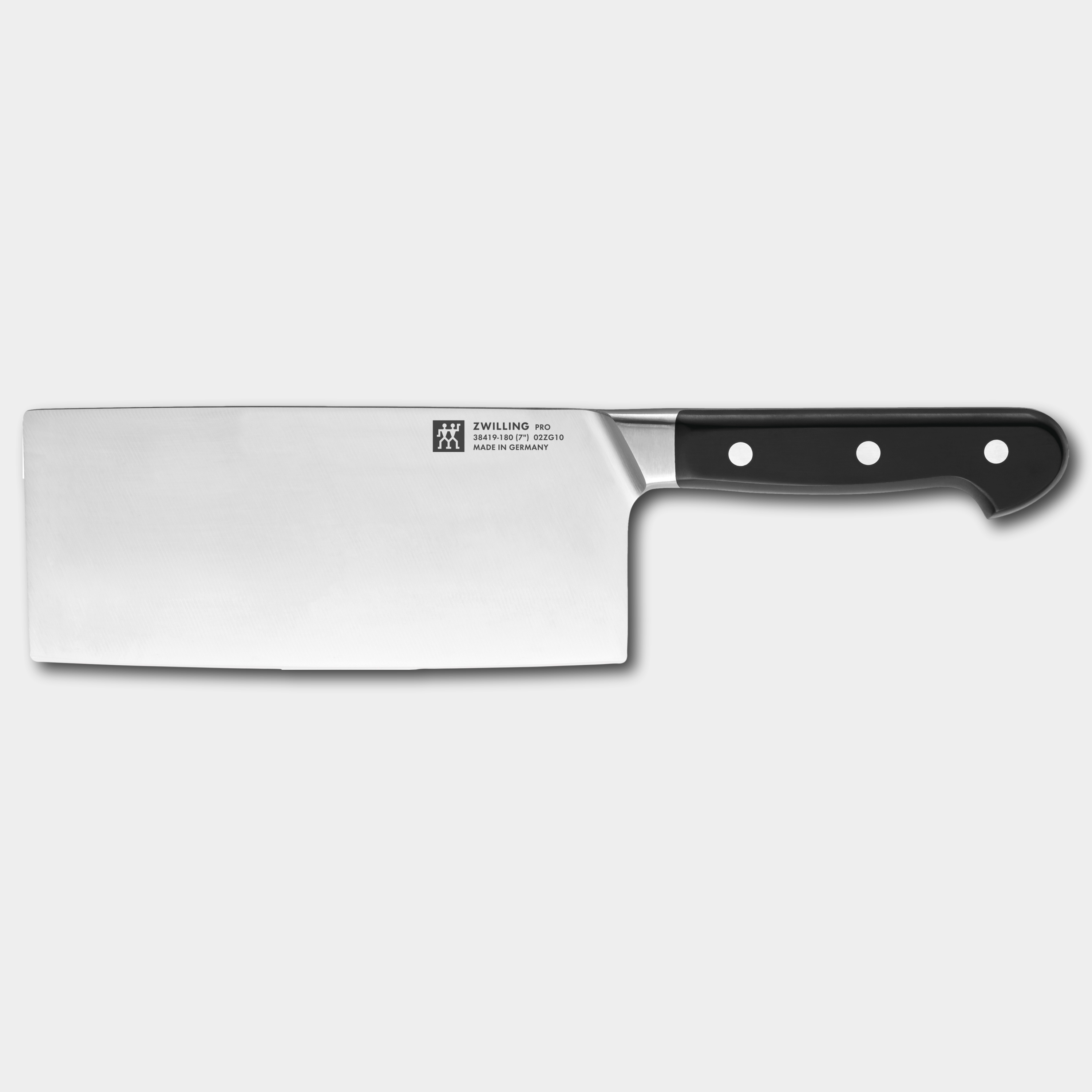
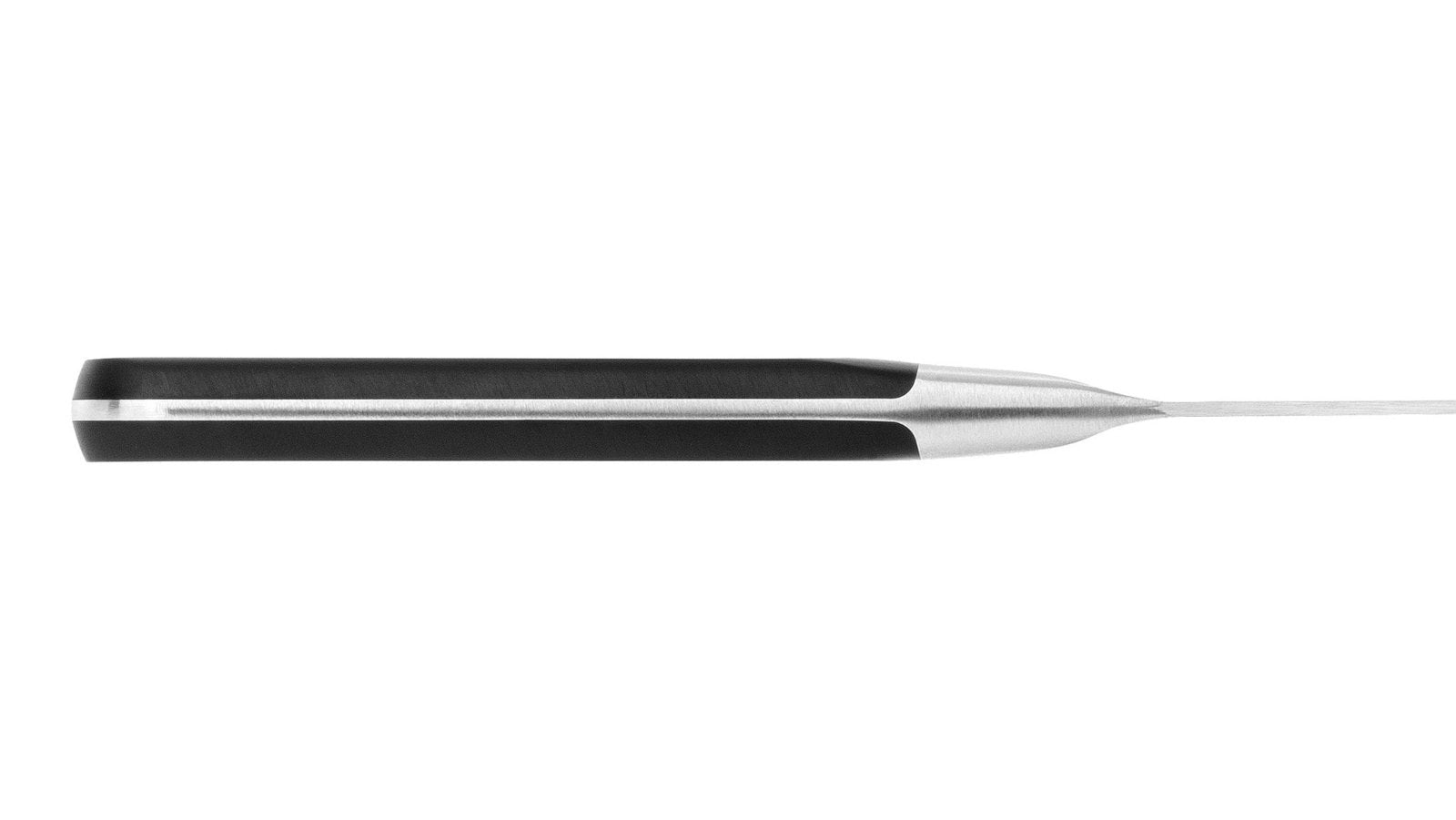
ZWILLING® Pro 18cm Chinese Chef's Knife
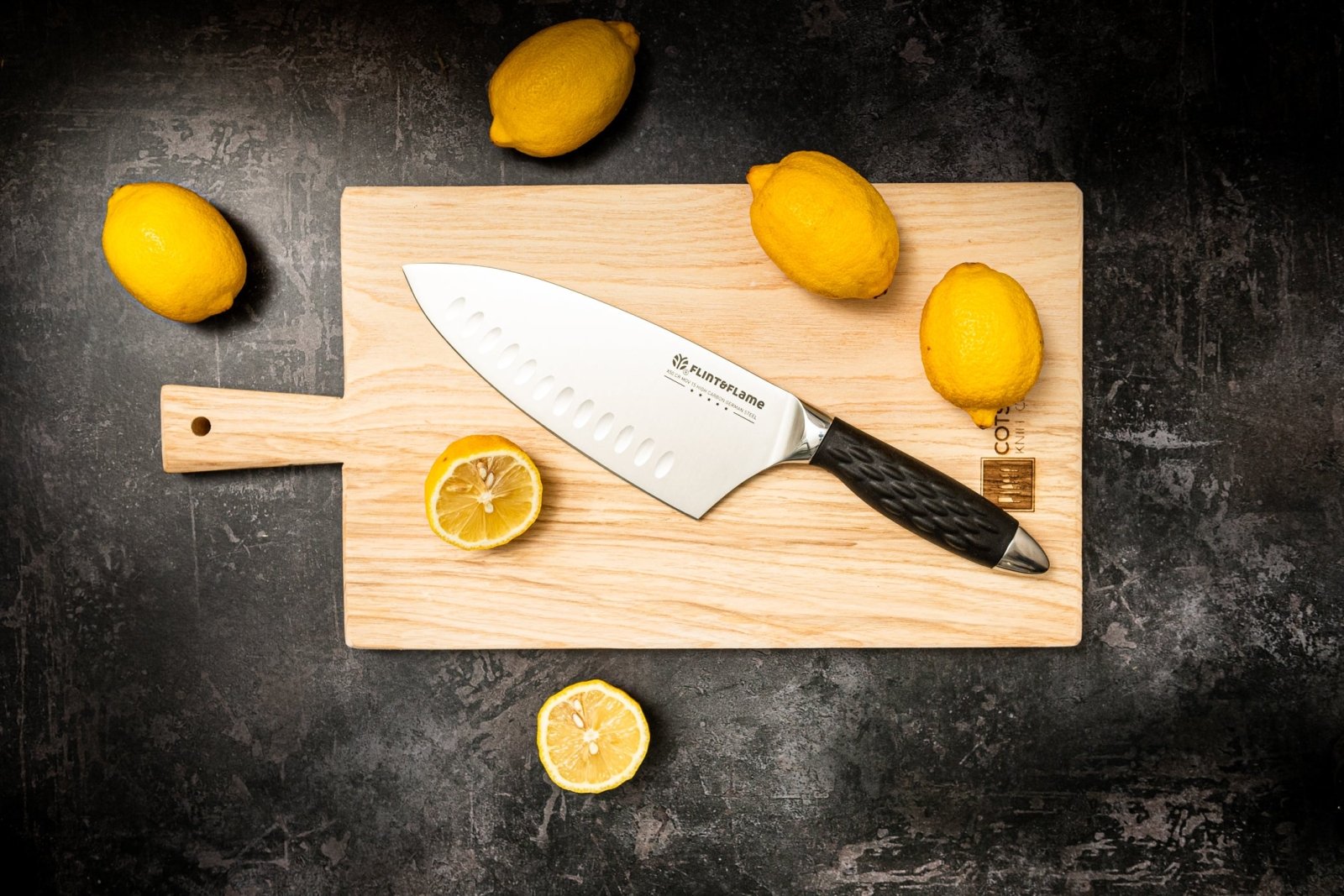
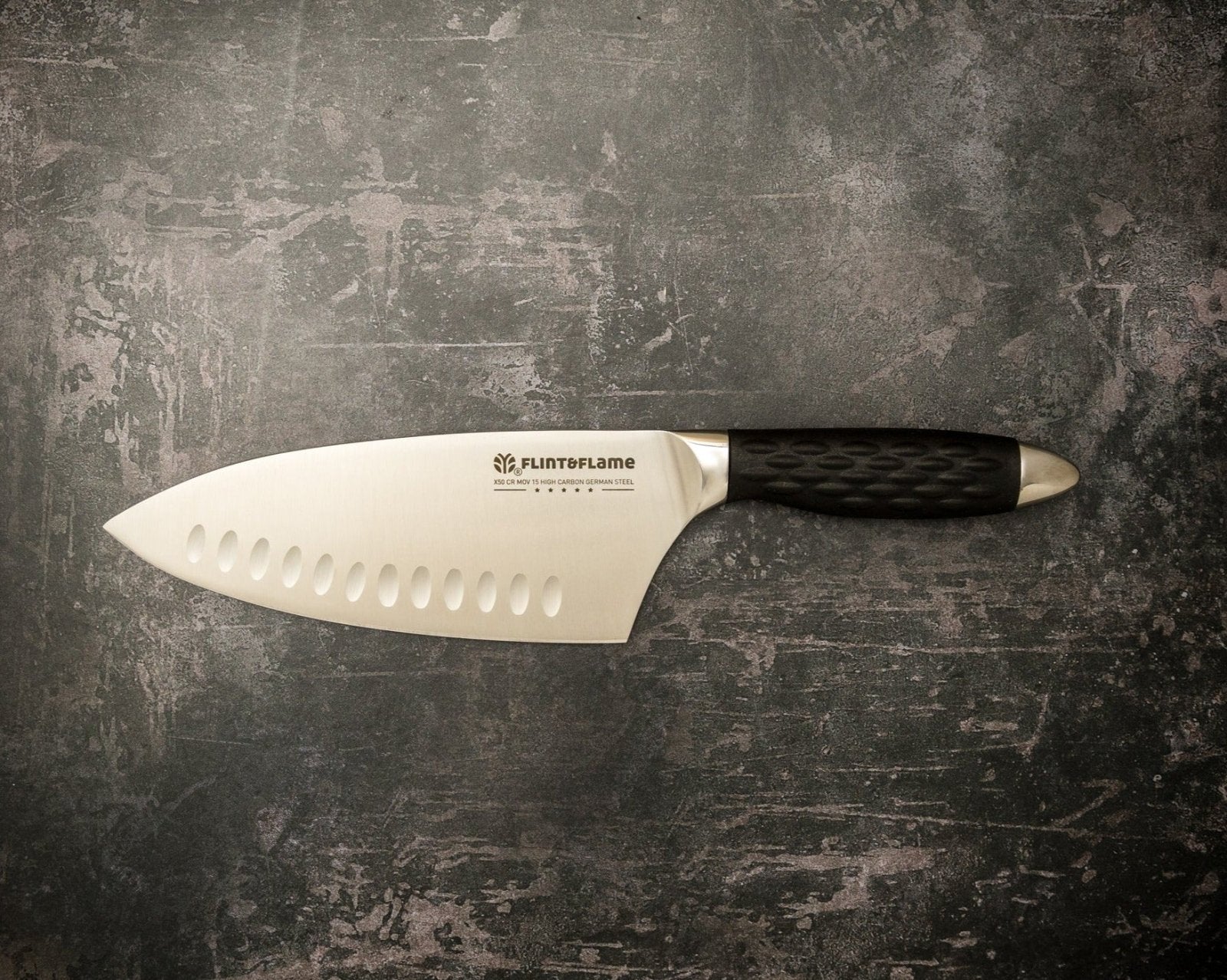
Flint & Flame Pro Series 7" Asian Cleaver
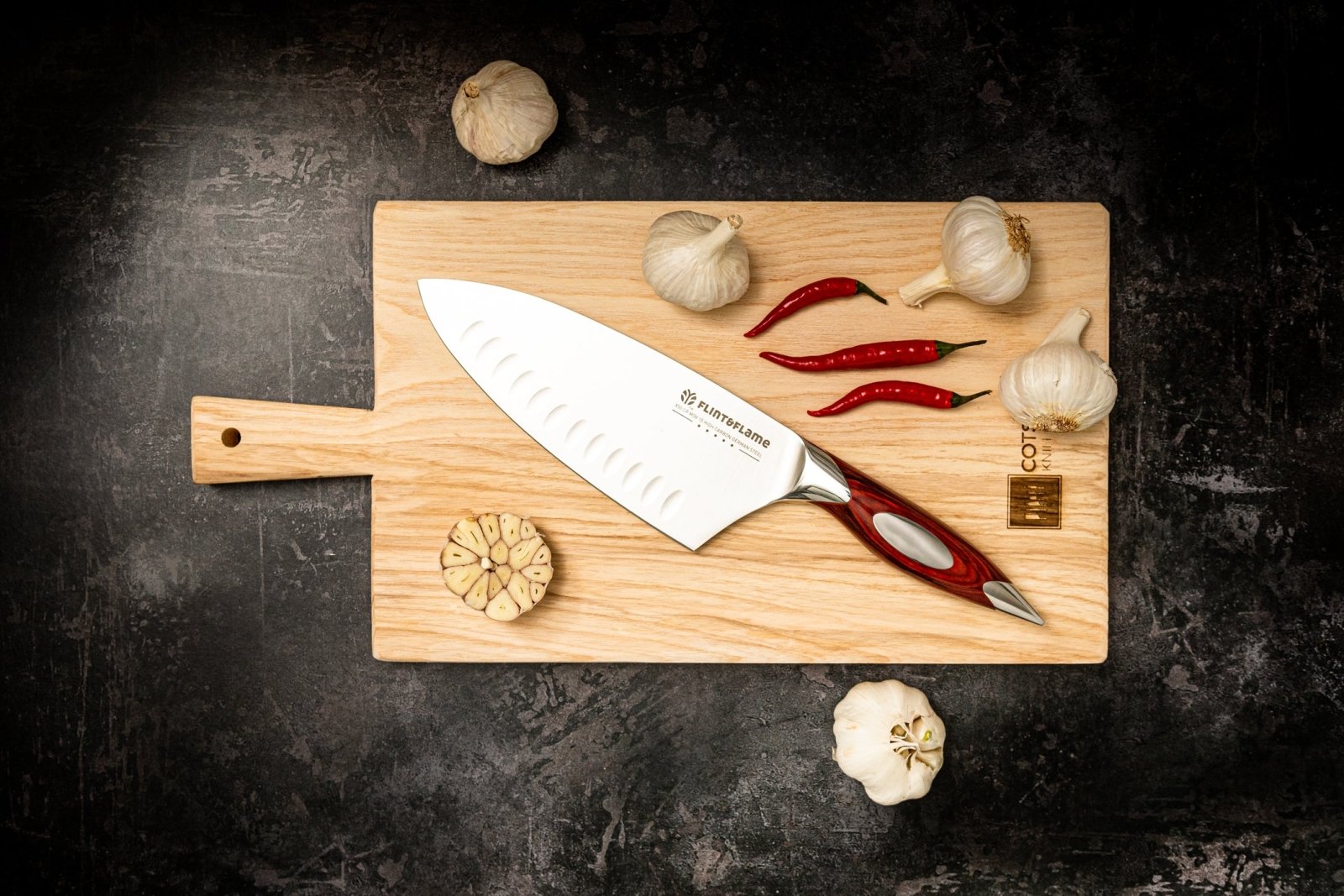
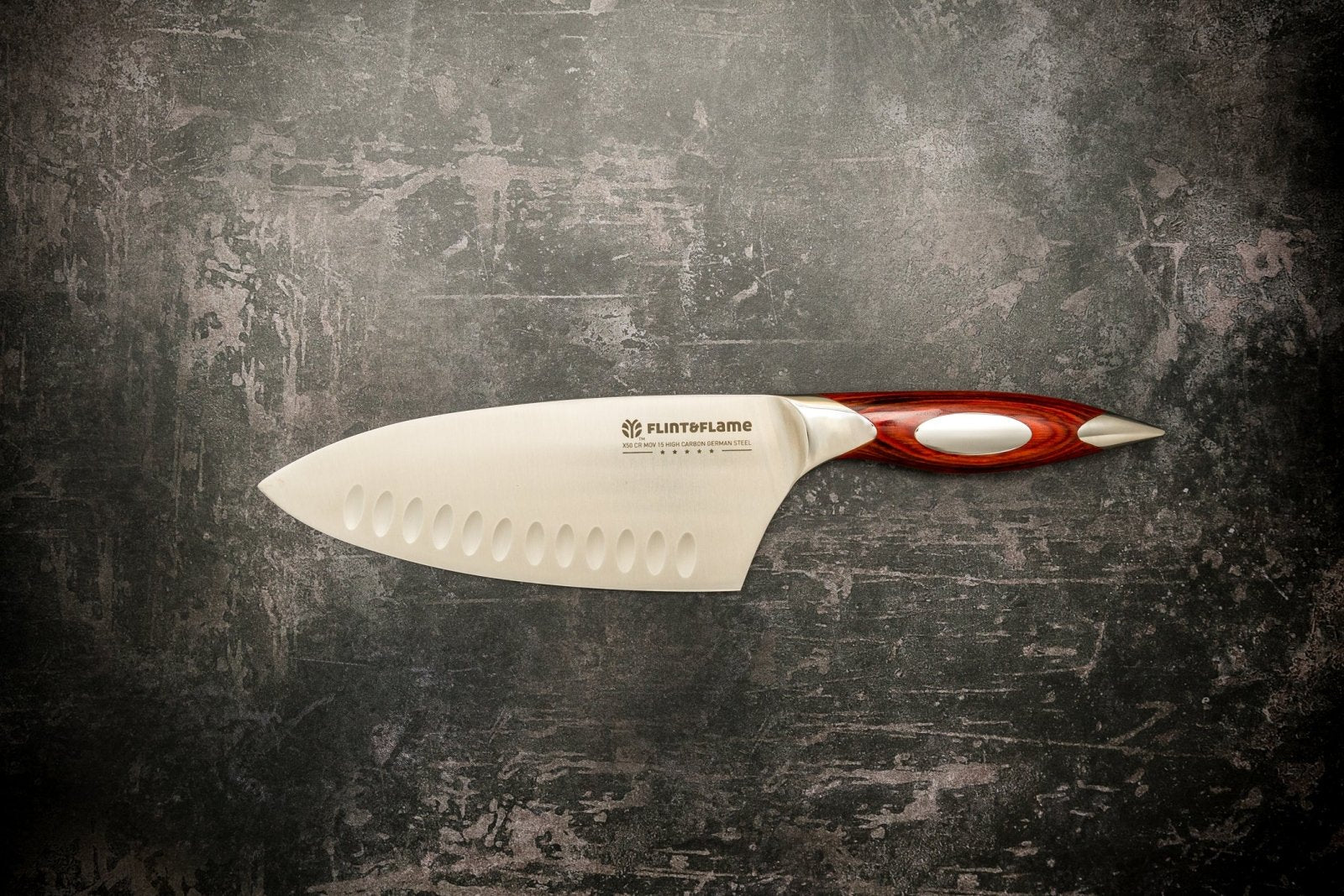
Flint and Flame 7 Inch Asian Cleaver
FAQs
Cleaver knives are versatile kitchen tools, primarily known for their ability to chop through tough meats, bones, and large vegetables with ease. The broad, heavy blade of a cleaver makes it ideal for tasks that require significant force, such as splitting poultry, breaking down large cuts of meat, and slicing through thick bones. They can also be used to chop vegetables with ease, however, for more precise chopping a smaller vegetable knife would be better suited.
Additionally, cleavers are useful for crushing ingredients like garlic or ginger with the flat side of the blade. The wide blade of the cleaver also allows for easy transfer of ingredients from chopping board to pan. Their durability and weight make them a must-have for both butchery and heavy-duty chopping in the kitchen.
The hole in some cleaver knives serves a practical purpose. It's primarily designed to make the knife easier to hang on a hook or peg for storage, which is particularly useful in busy kitchens or butcher shops where cleavers are used frequently. Additionally, the hole can also help with handling and control, especially when dealing with heavy-duty tasks like cutting through bones. By slipping a finger through the hole, a user can get better leverage and control over the large, heavy blade.
Maintaining your knives involves several essential practices to ensure they stay sharp, durable, and in top condition:
- Cleaning: Always wash your knives by hand with warm water and mild detergent immediately after use. It's important to avoid using the dishwasher, as the harsh environment can damage both the blade and the handle over time. After washing, dry the knives completely with a soft cloth to prevent any rust formation.
- Honing: Regular honing is key to keeping your knives sharp and maintaining their edge. Use a honing steel before or after each use to realign the blade's edge. Hold the steel vertically and gently slide the knife down and across the steel at a 20-degree angle.
- Sharpening: In addition to regular honing, your knives will need periodic sharpening, typically once or twice a year depending on how frequently you use them. You can sharpen your knives using a whetstone, a handheld sharpener, or opt for professional sharpening services.
- Storage: Proper storage is crucial for the longevity of your knives. Store your knives in a knife block, on a magnetic strip, or within protective sheaths. This not only prevents the blades from dulling but also helps avoid accidents. Storing knives in a drawer is not recommended, as they can easily get damaged.
- Cutting Surface: To maintain the sharpness of your knife edges, always use wooden or plastic cutting boards. Cutting on hard surfaces like glass, metal, or stone can quickly dull your knives.
- Avoid Misuse: Remember that these knives are specifically designed for cutting food. Avoid using them for any non-food related tasks, as this can damage the blade.
- Handle with Care: Always be mindful of the knife's balance and handle it with care. Avoid dropping or carelessly tossing your knives, as this can lead to damage to both the blade and the handle.
Shop at Cotswold Knife Company with confidence, knowing we are a verified stockist of all the knives we stock.
